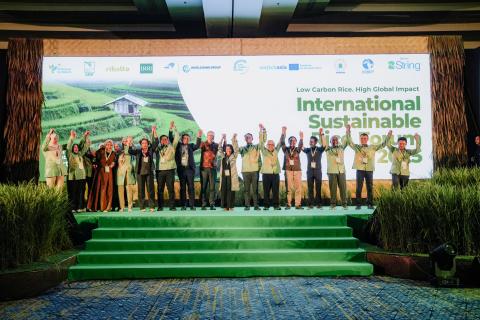Illegal logging: Will EU legislation match the US Lacey Act?
During a key international meeting on illegal logging, significant early effects of the US Lacey Act were highlighted, while it seems likely that similar proposed EU legislation to combat illegal logging will be watered down. The meeting also revealed that a Forest Corruption Index is under way.
CEO of NEPCon Peter Feilberg reports from the 14th international meeting on illegal logging, organised by Chatham House.
Every six months, the UK-based organisation Chatham House organises an international meeting on the efforts to fight illegal logging. This is a key event for all stakeholders interested in the topic, and this time it attracted more than 260 participants from all around the world.
EU less diligent than US?
The US Lacey Act is being implemented and already seems to have had a huge effect across the world. The US Ministry of Justice presented several cases where the committed act had resulted in several years of prison for the offenders. The Global Forest Risk Register was mentioned as a useful tool for evaluating risk of getting wood from illegal sources. The register was jointly launched last year by FSC, the Rainforest Alliance and NEPCon.
The proposed EU Due Diligence system has many similarities to the US Lacey Act – but also significant differences. A key point is that the Lacey Act holds all links in the business chain responsible for trading illegal products. But despite a proposal by the European Parliament to follow the same approach in the EU, expectations are that this will not be adopted by the EU Commission and that the EU legislation will only apply to the company placing illegal products on the market for the first time – either by importing it from outside EU or by harvesting within EU.
If this diluted version of the expected EU bill is passed, then we may expect to see an army of temporary brokers involved in import, ensuring that the big players don’t take any risk. Such a system is well-known to be in place already in Eastern Europe, where it is used for “white washing” illegal logging.
It is still unclear when and if the EU system will be ready. It is expected that Sweden will take the lead during its coming six months as chair of the EU Commission. Theoretically, the rules could be approved by the end of the year. However, rumour has it that there are there are conflicting interests within the council.
"Forest Corruption Index" under way
Another interesting point was the message that Transparency International has established a special program focusing on corruption within the forestry sector. The organisation expects to present the first report next year and to develop a scoring system for the forest sector similar to the system already known as the “Corruption Perception Index” (CPI), which is a general indication of perceived corruption within a country . This can become a very useful and more precise tool in controlled wood risk assessments, where it can replace the CPI.
EU climate change initiatives not coordinated
Initiatives to reduce carbon emissions from deforestation and forest degradation (REDD) are closely related to illegal logging and will only be succesful if illegal logging is halted. Several speakers were addressing these issues and managed well to illustrate the complexity of the problems. Currently it seems that the major international initiatives addressing illegal logging - such as the EU FLEGT program and EU REDD initiatives - are almost completely uncoordinated, even though they address the same issues.
The 14th international illegal logging meeting organised by Chatham House took place during 23-24 June. Presentations, papers and other info from the meeting can be found at www.illegal-logging.info.



